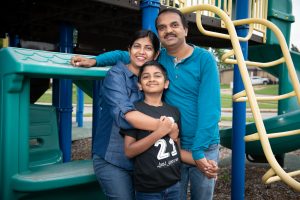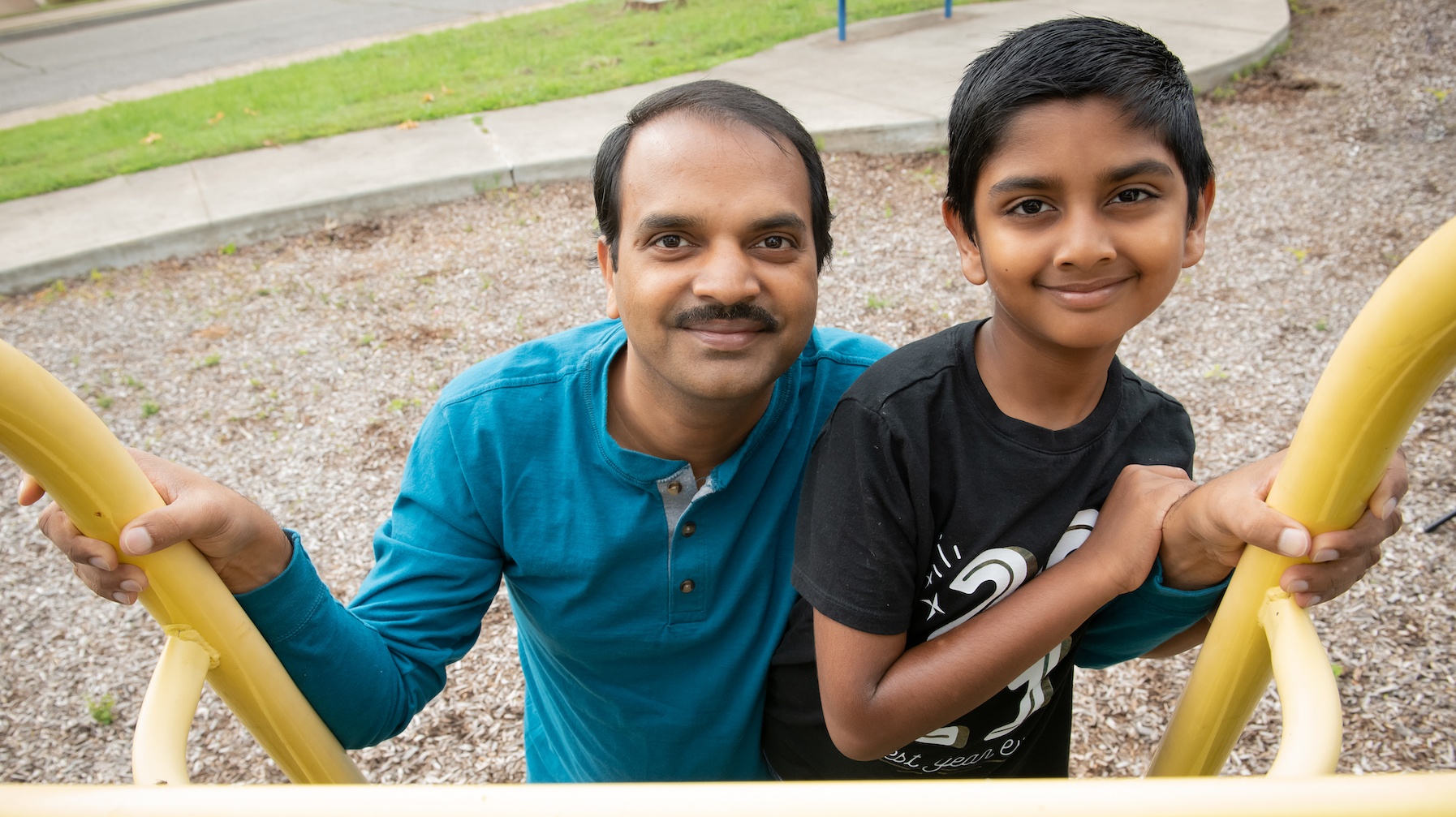Dr. Indranil Biswas doesn’t need a Father’s Day gift.
For Biswas, a scientist at the Oklahoma Medical Research Foundation, nothing can top the Covid-19 vaccine he received this spring. And for the 37-year-old father, the shot wasn’t just to arm himself against the virus. It was to shield his son, too.

“My 7-year-old can’t get the vaccine, but I can,” said Biswas, who studies blood clotting in OMRF’s Cardiovascular Biology Research Program. “My responsibility as a father is to protect my family, and that’s what I’ve done. It was an easy decision.”
A recent study out of Israel analyzing Covid-19 vaccination rates and subsequent community infections confirmed what researchers suspected: as inoculations increased, the rate of unvaccinated people testing positive for Covid-19 decreased. In other words, a parent’s best defense against their children being exposed to the coronavirus is vaccinated adults.
But unlike Biswas, the choice to get the shot hasn’t been as straightforward for many men across the U.S. This spring, a Kaiser Health News analysis of vaccination data from 38 states found that men lag behind women nationwide at getting their Covid-19 jabs.
The gap exists even as Centers for Disease Control and Prevention data show that men are more likely to get severely ill from or die due to Covid-19. The disparity is troubling, said OMRF physician-scientist Hal Scofield, M.D., but it’s not surprising.
“Men are good at a lot of things. Getting routine health care is not one of them,” said Scofield. Statistically, he explained, men fall far behind women in most areas of preventative care. “Lagging numbers of Covid-19 vaccinations among men are just the most recent example.”
For years, scientists have studied how and why men are less likely to seek care. Study after study has shown traditional ideas about masculinity — like the need to be tough or brave — result in men putting off vaccines and ignoring medical problems.
“The ‘macho man’ mentality that permeates our culture is dangerous,” said Scofield, who also serves as associate chief of staff for research at the Oklahoma City VA. “And in the case of Covid-19, while you may luck out and be fine after a bout of the virus, your children or loved ones may not be so fortunate.”
Biswas received his Covid-19 vaccine in March. Not getting it, he said, would’ve been “like playing with fire.” Last August, his wife, OMRF scientist Monalisa Choudhury, lost her father to the virus.
“He was young, healthy and had no pre-existing conditions,” said Biswas of his father-in-law, who lived in West Bengal, India. “He had no access to a vaccine. It’s a miracle we have safe ones available now.”
It’s sentiment Scofield shares, calling a Covid-19 vaccine “the best Father’s Day present dads can give to themselves.”
For Biswas, vaccination status has made another big celebration possible: His son’s upcoming birthday.
“Imon was really proud of me for getting the shot,” said Biswas. “He’s always wanted to celebrate a birthday by the ocean. So, now that my wife and I are vaccinated, we’re going to make that happen.”



